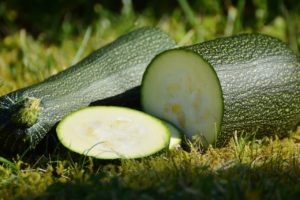If you suffer from a peptic or duodenal ulcer, the last thing you might consider taking is hot Cayenne Pepper. This goes against everything you’ve ever heard about what aggravates an ulcer, the facts are that most “spicy” foods do just the opposite. Capsicum (Cayenne Pepper) can reduce pain which serves as a local anesthetic to ulcerated tissue in the stomach and can even help to control bleeding in the stomach.
Some individuals may be bothered by eating “Red Pepper” or spicy foods, these foods do not cause the formation of gastric ulcers in normal people. An interesting note is that people suffering from ulcers usually avoid Cayenne Pepper, in fact those people may actually benefit from its therapeutic action.
Taking Capsicum may significantly reduce the risk of ever developing a peptic ulcer. A Chinese study published in 1995 stated, “Our data supports the hypothesis that the chile used has a protective effect against peptic ulcer disease.”1
Another 1995 study found that Capsicum can even protect the stomach lining from aspirin induced ulcers.2 Aspirin can cause stomach ulceration in certain individuals or if taken with too little water or juice. Researchers have concluded after experimenting with human volunteers that the capsaicin content of capsicum has a definite gastro – protective effect on the mucous membranes of the stomach.3 Eighteen healthy volunteers with normal gastrointestinal mucosa took chile and water followed by 600 mg of aspirin and water. The study was conducted over a period of four weeks. Endoscopy results showed that taking 20 grams of chile before the aspirin definitely demonstrated a protective action on the stomach lining.4 Capsicum has the ability to rebuild stomach tissue.
Capsicum has the ability to bring blood to regions of tissue at a faster rate boosts the assimilation of foods that are consumed with it.5 Several clinical studies support this phenomenon. It has been thought that Capsicum stimulate the release of substances which increase secretions in the stomach and intestines plus can increase an abundance of blood to the stomach and intestines.6 In fact, Capsicum can increases the flow of digestive secretions from the salivary, gastric and intestinal glands.
References:
1 J. Y. Kang, et al. “The effect of chile ingestion of gastrointestinal mucosal proliferation and azoxymethane-induced cancer in the rat.” Journal of Gastroenterology-Hepatol. Mar-Apr. 1992: 7 (2): 194-98.
2 K. G. Yeoh, et al. “Chile protects against aspirin-induced gastroduodenal mucosal injury in humans.” Dig-Dis-Sci. Mar. 1995: 40 (3): 580-83.
3 Ibid.
4 Ibid.
5 L. Limlomwongse, et al. “Effect of capsaicin on gastric acid secretion and mucosal blood flow in the rat.” Journal of Nutrition. 1979: 109, 773-77. See also T. Kolatat






